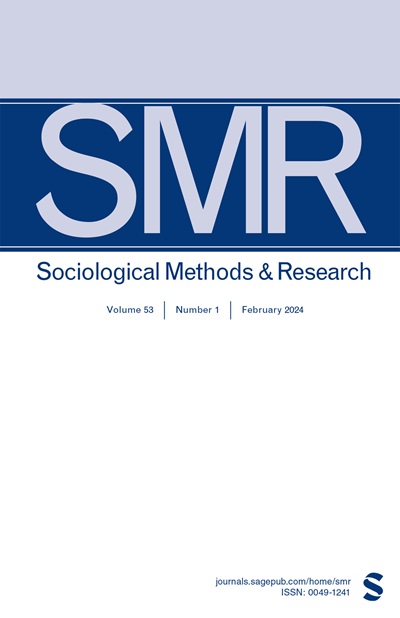认真对待因果异质性:对案例选择和基于案例研究的归纳的启示
IF 6.5
2区 社会学
Q1 SOCIAL SCIENCES, MATHEMATICAL METHODS
引用次数: 1
摘要
在混合方法中,统计模型用于识别“嵌套”病例,用于一系列目的的密集、小规模调查,特别是检查因果机制。这篇文章表明,在因果效应的常识性解释下,大n模型不允许对个别情况下的效应大小得出可靠的结论——即使我们像通常建议的那样选择“更高”的情况。与既定实践相反,我们表明,选择“强化”异常病例——其中结果比统计模型中预测的要强——适合于测试先前存在的因果机制假设,因为这降低了假阴性的风险。在归纳研究机制时,研究人员面临着在“在线”和强化异常病例之间的选择,这代表了假阴性和假阳性之间的权衡。我们证明,通过案例的配对比较,嵌套研究设计的推理能力可以大大提高。更普遍地说,本文提供了一个新的概念框架,用于理解案例研究中因果概括的局限性和条件。本文章由计算机程序翻译,如有差异,请以英文原文为准。
Taking Causal Heterogeneity Seriously: Implications for Case Choice and Case Study-Based Generalizations
In mixed methods approaches, statistical models are used to identify “nested” cases for intensive, small-n investigation for a range of purposes, including notably the examination of causal mechanisms. This article shows that under a commonsense interpretation of causal effects, large-n models allow no reliable conclusions about effect sizes in individual cases—even if we choose “onlier” cases as is usually suggested. Contrary to established practice, we show that choosing “reinforcing” outlier cases—where outcomes are stronger than predicted in the statistical model—is appropriate for testing preexisting hypotheses on causal mechanisms, as this reduces the risk of false negatives. When investigating mechanisms inductively, researchers face a choice between “onlier” and reinforcing outlier cases that represents a trade-off between false negatives and false positives. We demonstrate that the inferential power of nested research designs can be much increased through paired comparisons of cases. More generally, this article provides a new conceptual framework for understanding the limits to and conditions for causal generalization from case studies.
求助全文
通过发布文献求助,成功后即可免费获取论文全文。
去求助
来源期刊

Sociological Methods & Research
Multiple-
CiteScore
16.30
自引率
3.20%
发文量
40
期刊介绍:
Sociological Methods & Research is a quarterly journal devoted to sociology as a cumulative empirical science. The objectives of SMR are multiple, but emphasis is placed on articles that advance the understanding of the field through systematic presentations that clarify methodological problems and assist in ordering the known facts in an area. Review articles will be published, particularly those that emphasize a critical analysis of the status of the arts, but original presentations that are broadly based and provide new research will also be published. Intrinsically, SMR is viewed as substantive journal but one that is highly focused on the assessment of the scientific status of sociology. The scope is broad and flexible, and authors are invited to correspond with the editors about the appropriateness of their articles.
 求助内容:
求助内容: 应助结果提醒方式:
应助结果提醒方式:


